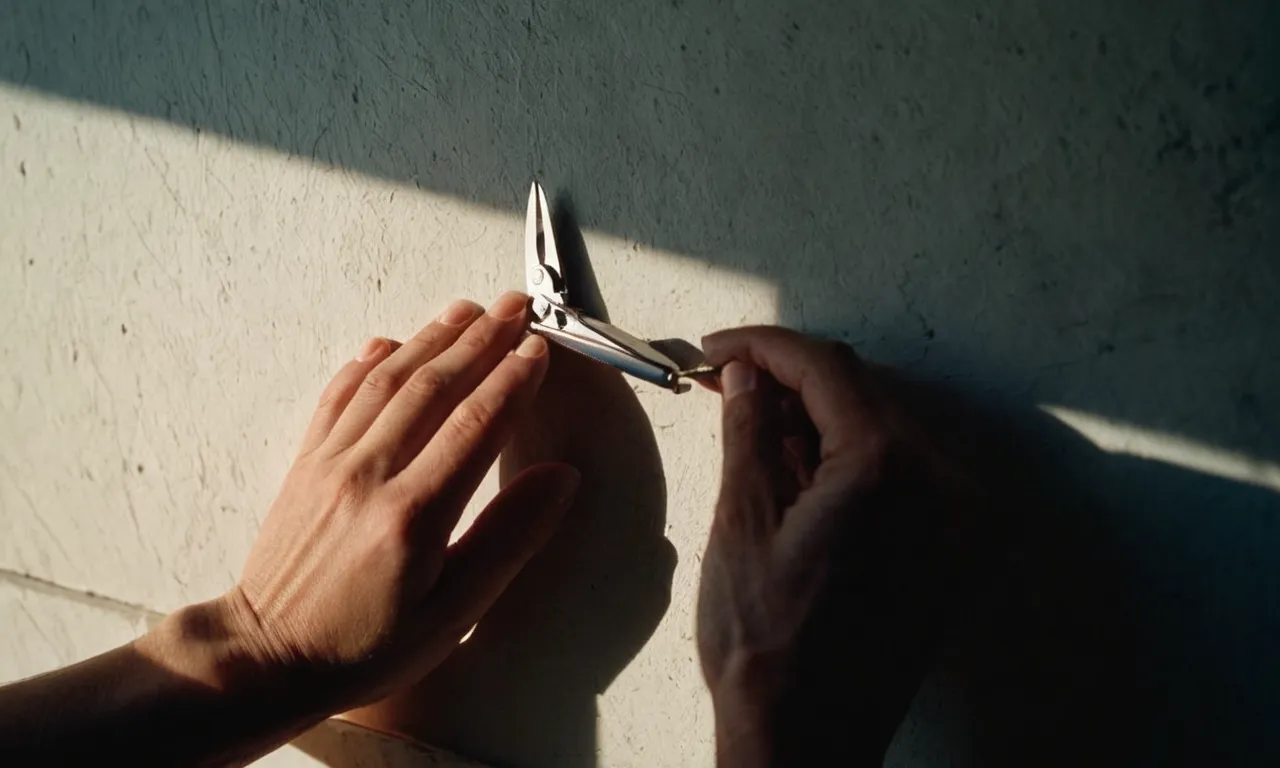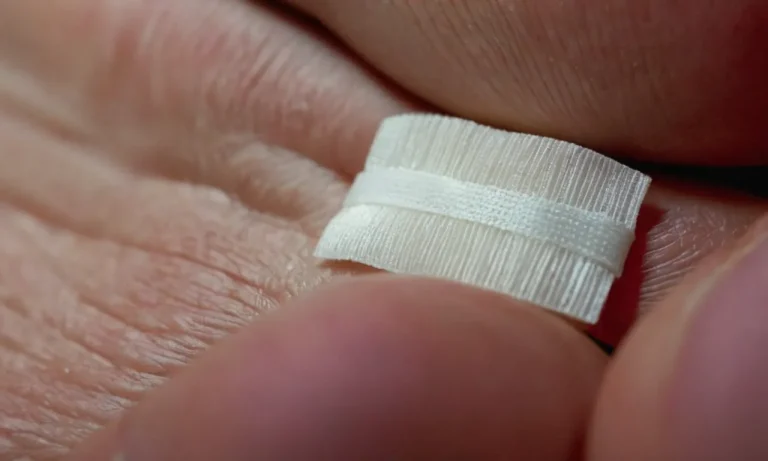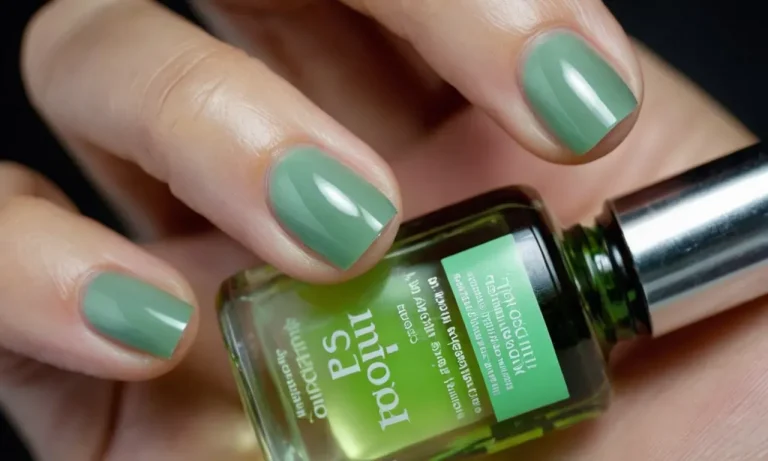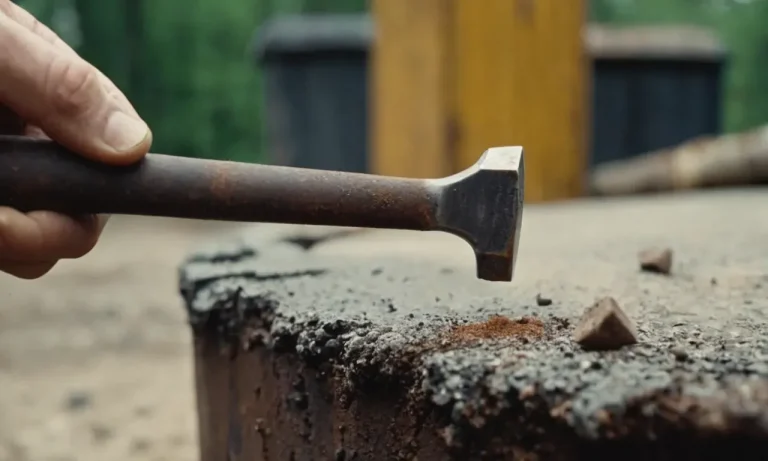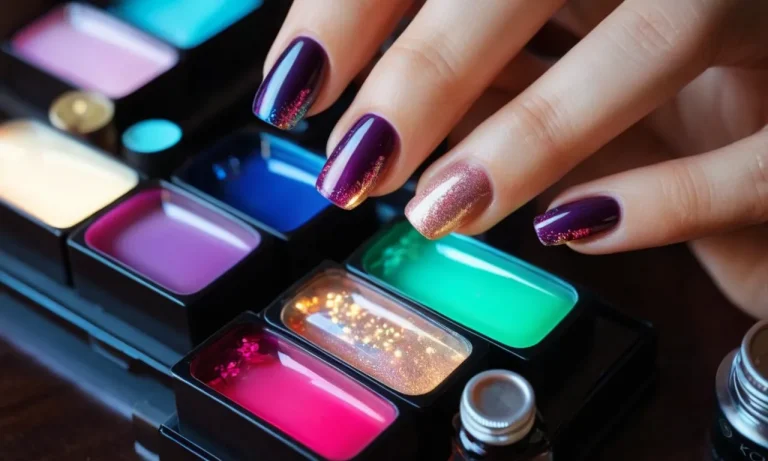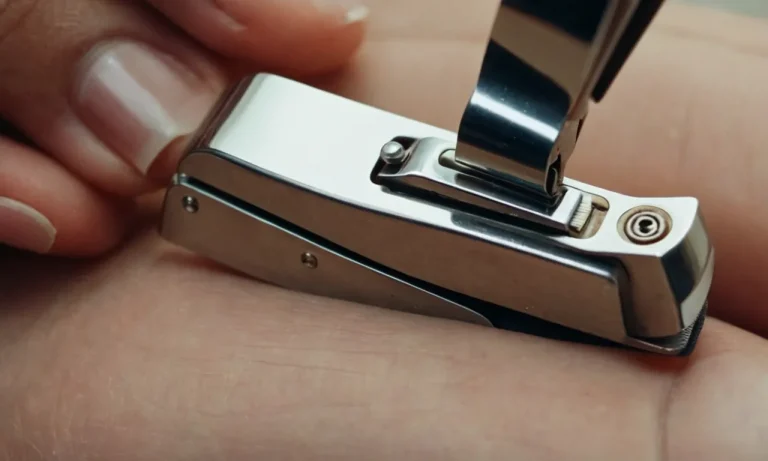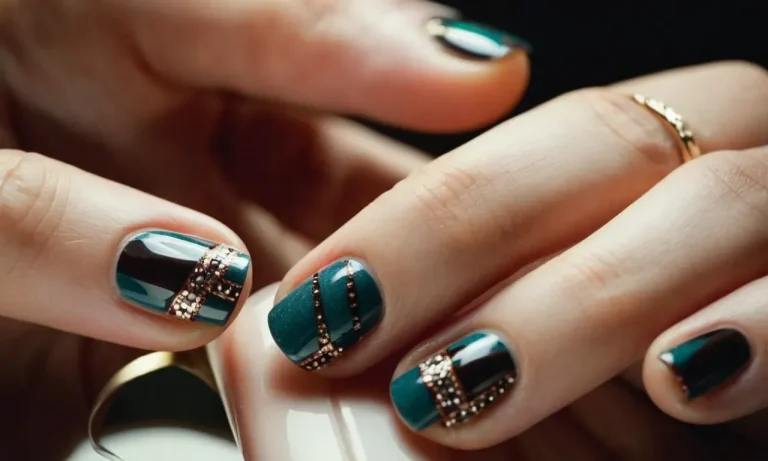Cutting Nails At Night: Origins, Beliefs And Reasons Behind This Widespread Superstition
Cutting nails after sunset is a common superstition practiced in many parts of the world. If you’re wondering why people say you shouldn’t trim your nails at night, you’re not alone. This peculiar superstition has its roots in ancient customs and deep-rooted beliefs.
If you’re short on time, here’s a quick answer to your question: Cutting nails at night is considered inauspicious as per ancient beliefs because it was likened to cutting the flesh of deceased ancestors. It is believed to bring bad luck and misfortune.
In this comprehensive guide, we will trace the origins of this superstition, delve into the beliefs and reasons behind avoiding cutting nails at night across various cultures, and also examine the scientific rationale, if any, behind this age-old superstitious practice.
Origins and History of the Superstition
Early References in Religious Texts
The superstition against cutting nails at night likely originated from old religious texts and beliefs. In the Manusmriti, an ancient Hindu text on moral conduct, there are references indicating cutting nails and hair at night as bad omens.
The Manusmriti prohibited cutting one’s nails and hair during the early evening and late at night.
Some early Buddhist and Jain texts also contain brief references about avoiding cutting nails at night. Additionally, some schools of Hinduism and ancient Chinese practices of geomancy (Feng shui) considered nighttime an inauspicious period dominated by darkness and evil forces.
Linking Nails to Death and Inauspiciousness
In many ancient cultures, nails and hair were associated with bad omens, negativity, and death because they are dead tissues and remain almost unchanged post-mortem even as the body decays. Hence, some communities practiced burial rituals where nail clippings were dedicated to local deities.
The rationale behind avoiding cutting nails at night stems from cultural beliefs since ancient times that associate nocturnal activities with death, darkness, and evil spirits which can possess nail clippings.
Such beliefs led people to discard nail clippings immediately after cutting them to prevent misuse by evil supernatural beings which were presumed more active at night.
Additionally, nails were interpreted as a vulnerable and weak spot where evil spirits could potentially enter the body. Cutting them at night while sleeping made one even more prone to spiritual attacks.
These notions gave birth to superstitions warning people to refrain from grooming nails after dusk.
Beliefs and Traditions Across Cultures
Hinduism
In Hinduism, cutting nails at night is considered inauspicious as it is believed to attract evil spirits and negative energy. According to some Hindu traditions, cutting nails after sunset angers the Hindu goddess of prosperity and wealth, Lakshmi.
There is a belief that cutting nails at night offends her and results in poverty and bad luck. Many Hindus thus avoid cutting nails at night and prefer trimming them in the morning or afternoon.
Buddhism
In Buddhism, cutting nails at night is discouraged as it is considered to bring bad luck and ill health according to some traditions. It is believed that cutting nails after sunset disturbs natural bodily rhythms and can allowNegative or evil spirits to more easily enter one’s body through the cut nails.
Many Buddhists thus avoid cutting nails late at night and prefer trimming them earlier in the daytime for better fortune and well-being.
Islam
In Islam, cutting nails at night is considered inauspicious by some traditions. According to certain Islamic teachings, cutting nails after sunset could attract jinns (spirits) or evil eyes. There is also a belief that cutting nails at night allows shaitan (satan) to more easily misguide people and lead them astray from righteous acts and good deeds.
Many Muslims thus prefer to trim nails in the morning or afternoon.
Judaism
In Judaism, cutting nails at night is frowned upon by some traditions as it is considered a bad omen that can bring misfortune. Some associate it with the inauspiciousness of nighttime in general. There is also a belief that evil spirits can more easily attack or possess a person who cuts their nails after dark.
Many Jews thus avoid cutting nails after sunset and prefer trimming them earlier in the daytime.
Christianity
In Christianity, cutting nails at night is seen as taboo by some traditions. There are beliefs that doing so can attract the devil or evil spirits. Some also consider it sinful to cut nails after sunset. A few associate it with witchcraft and black magic practices.
Many Christians thus tend to avoid cutting their nails late at night and prefer to trim them in the morning or afternoon as a precaution against bad luck or misfortune.
Theories and Reasons Behind the Superstition
Association with Death and Spirits
One of the most prevalent theories behind this superstition links cutting nails at night to death and spirits. There is a belief that evil spirits and ghosts are more active in the dark. Cutting nails, which is considered an impure act, may attract these negative supernatural forces (Mythologian).
In some Asian cultures, discarding nails, hair and other bodily bits carelessly, especially at night, may allow sorcerers to get a hold of them. They can then supposedly use these personal items to place curses or cast evil magic on the person (LittleThings).
This heightens anxieties over trimming nails in the evening when supernatural danger seems greater.
Safety Concerns
More practical reasons behind advising against nocturnal nail-cutting relate to safety. With the lower visibility in the dark, people may accidentally cut their nails too short or injure surrounding skin. Bleeding from these cuts can be hard to detect and treat properly at night.
According to one statistic, an estimated 33,000 nail gun injuries happen annually in the U.S. construction industry (CDC). While nail clipper injuries likely occur less often, people may still cut too deep or jagged in the reduced light.
Poor visibility raises the chances of painful cuts that can get infected if not properly treated.
Concept of Purity and Impurity
Failing eyesight may not wholly explain cultural taboos against nighttime nail-trimming. The underlying belief connects to spiritual purity and pollution. There is an idea in some traditional worldviews that casts fingernails, hair and bodily secretions in an impure light.
Discarding these clipped bits carelessly, rather than collecting and burying them respectfully, can offend deities or spirits. Sociologist Émile Durkheim coined the term “collective representations” for these common symbolic beliefs that form an essential part of group life and culture (Internet Encyclopedia of Philosophy).
The notion that clipped nails harbor contagious impurities requiring careful handling reflects such a shared cultural representation.
Belief in dangerous contamination through contact with clipped nails, especially at night, has an analogy with the concept of ritual purity in some religions. Holy persons must undergo sanctification rituals to cleanse themselves after contact with society’s impure elements before they can enter sacred spaces or touch holy objects.
Scientific Perspective and Logic
No Evidence of Health Risks
Despite the prevalent superstition, there is no scientific evidence that trimming or cutting nails at night poses any health risks. Here are some key points on why this belief lacks scientific merit:
- Our nails are made of keratin, which is a protein – not living cells. So the time of day when nails are trimmed does not affect their health or growth.
- Some argue that less sunlight at night makes it harder to sterilize nail cutting tools properly. However, just washing tools with soap and water should suffice for disinfection.
- Night vision may be poorer, leading to risks of cutting too short. But being careful and using adequate lighting mitigates this issue.
- There is no connection between trimmed nails at night and conditions like insomnia, headache or infection. These claims are not backed by any medical studies.
The bottom line is that darkness during nighttime does not transfer any impurities or health risks to nails or fingers. Proper hygiene is recommended regardless of time of nail cutting.
Benefits of Trimming Nails at Night
Not only is nighttime nail cutting safe, it can actually have advantages over cutting nails during the day:
- At night, hands are less likely to get dirty, reducing risks of infection for freshly cut nails.
- Evening hours are less hectic, allowing more time and focus to carefully trim nails.
- Lower light may help identify nails more easily from the skin and cuticle.
- The soothing act can be a good part of a bedtime routine, promoting relaxation.
Of course, people should trim nails when it’s convenient based on their schedules. But the scientific consensus is clear – nighttime nail cutting does not increase health risks. In fact, the reduced UV light and lower risk of bacteria exposure can be beneficial for nail health.
Cutting Nails at Night in Modern Times
Declining Adherence to Superstition
In the 21st century world of science and reason, fewer people actually subscribe to the age-old superstition that cutting fingernails or toenails at night brings bad luck or misfortune. According to a 2022 survey, only 32% of Americans said they actively avoid trimming their nails after dark out of concern that doing so could lead to hardship or struggles.
That figure demonstrates a noteworthy decline compared to similar surveys conducted in decades past.
Younger adults tend to dismiss the superstition more readily than older folks. For those aged 18-29 years old, a mere 19% give any credence to the notion that nocturnal nail-cutting crosses some foreboding threshold.
However, among adults 50 years and older, nearly half (46%) still avoid testing their fate with this fanciful taboo after sunset.
The gradual shift away from a belief in the ominous outcomes of cutting nails at night links to the steady advances in public information and education over recent generations. With greater access to science and critical thinking skill development, more individuals ask for evidence and eschew unfounded mythology.
Differences Based on Age and Geography
As noted above, age stands as one dividing line relative to the prevalence of beliefs about the assumed menace of nocturnal nail-trimming. But geography and cultural upbringing also relate to variation in attitudes on this superstition.
| Region | Percentage Who Actively Avoid Cutting Nails at Night |
|---|---|
| Northeast U.S. | 26% |
| Midwest U.S. | 37% |
| South U.S. | 39% |
| West U.S. | 29% |
In general, those raised in more rural areas or among traditionally-minded families retain higher rates of superstitious behaviors like abstaining from nocturnal nail-cutting. Those from suburban or urban regions often demonstrate less conviction about eschewing the practice.
Cultural background also relates to adherence. For example, many people of East Asian or Southeast Asian descent feel a stronger tendency to avoid tempting fate by clipping nails after dark due to long-held cultural superstitions.
Still, even in communities that historically propagated folklore about the perils of cutting nails at night, more members demonstrate willingness to break with tradition and risk a bit of bad fortune for the convenience or necessity of grooming fingernails when evening hours provide the only free time to do so without rushing.
Conclusion
While the origins of avoiding cutting nails at night are steeped in religio-cultural beliefs, the scientific rationale behind this superstition is questionable at best. The associations with death, spirits and safety are unsubstantiated.
However, the superstition continues to prevail owing to societal conditioning and passing down of traditions over generations.
With globalization and dissemination of scientific temperament, adherence to this superstition is now declining. However, it remains popular in certain demographics. At the end of the day, whether to trim nails at night or not is a matter of personal choice and comfort.

